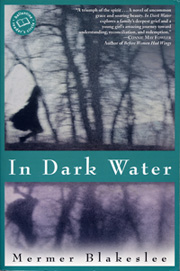|

In Dark Water
The Ballantine
Publishing Group
August 1998; May 1999
Page 5
Synopsis
Reviews
Excerpt: Chapter 1
|
|
| |
|
than Dorrie’s telling without losing the empathy and identification with her. That was a challenge, especially in the chapter “Procedure,” where Dorrie is largely unaware of sexuality.
|
| |
Q: |
Eudora experiences her feelings through her body in a very visceral manner. Do you think that this physical manifestation of emotion is common to children as they deal with grief that is beyond their understanding? |
|
MB: |
I think children haven’t learned yet to separate their bodies and their souls like adults do. They squirm, wriggle, wag their whole bodies. All emotions, not just grief, can elude our intellectual “understanding,” but they can never elude our bodies. Our bodies know much more than we give them credit for. As adults, we often wait until our bodies are screaming at us in pain to pay attention to them—except in rare moments, like in sex or in a risk sport. Then, for a moment, body and soul can merge. |
| |
Q: |
We witness the sudden, uncontrollable spread of Eudora’s “bad” smile throughout the novel. The smile seems almost personified—as if it takes on a life of its own. Can you elaborate on this? |
|
MB: |
That’s true. And our souls, too, have a life of their own. We don’t own them. Beulah sees that same smile and calls it a grin, “Just breakin’ across her face.” She loves it. And Dorrie only feels the bad smile come back when she starts to lie or when she thinks of her mother. I didn’t plan that, but in hindsight I see that the soul’s expression can get so twisted when it is not given any welcoming place.
< Back Next >
|
|
|
